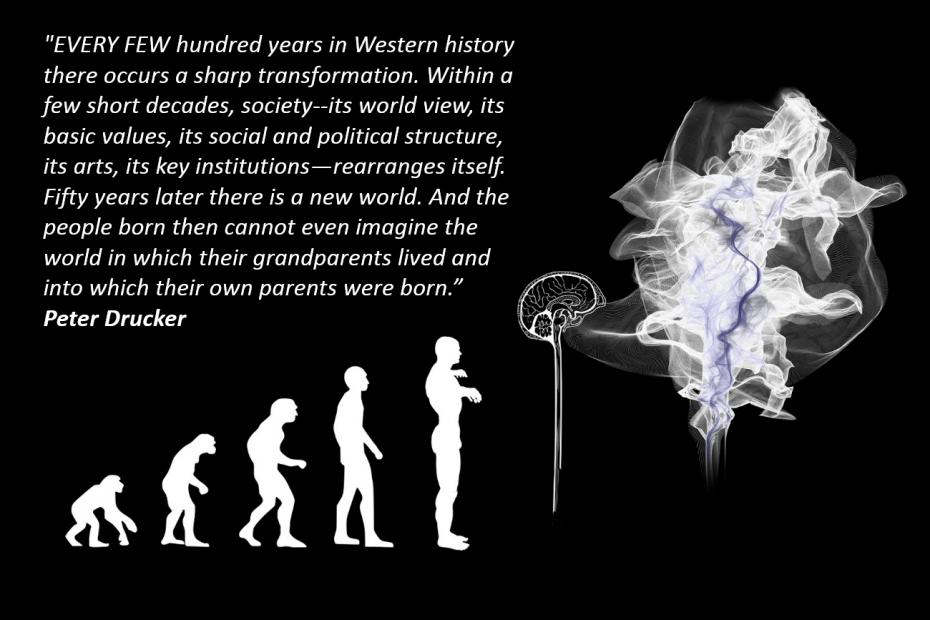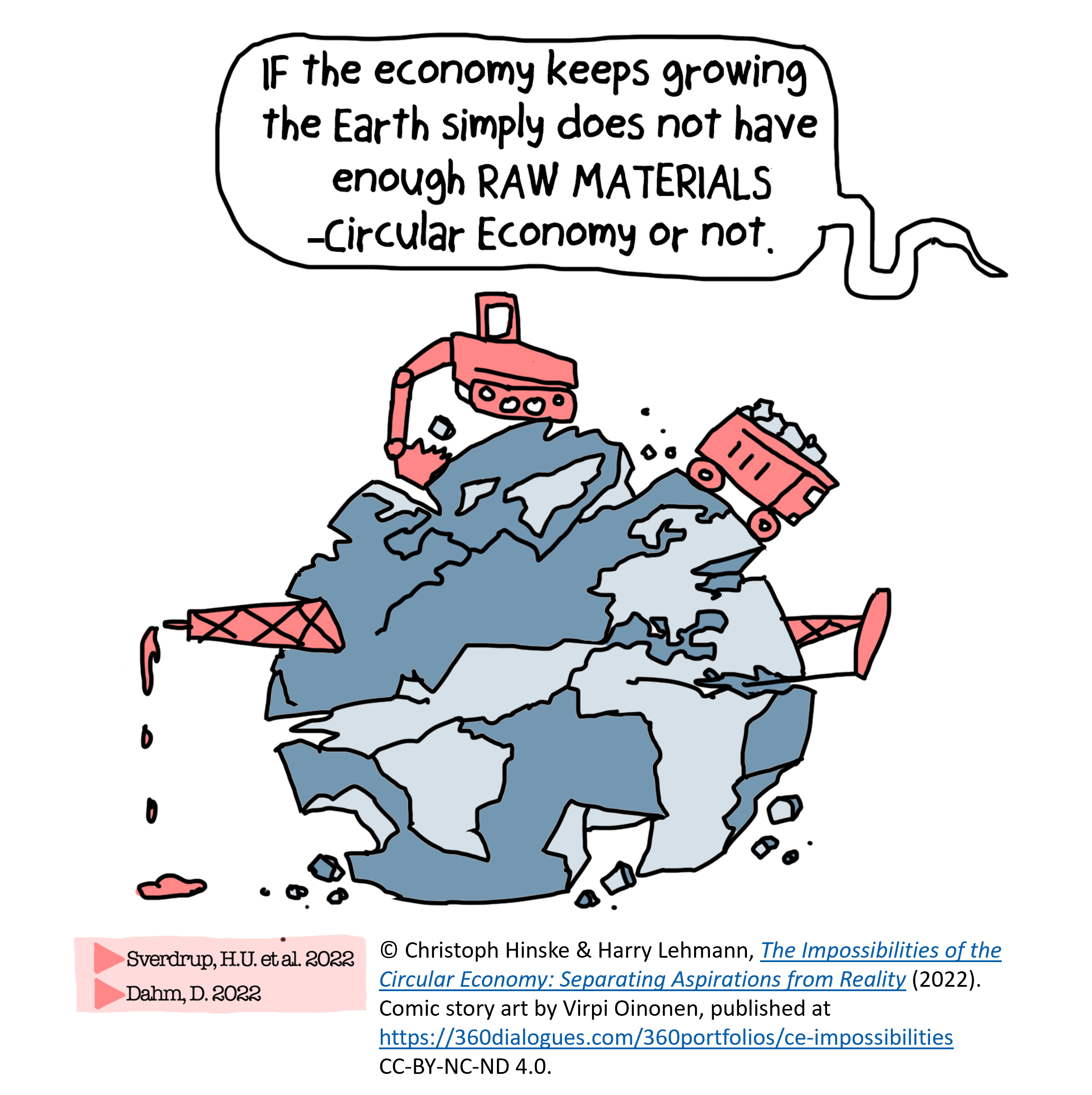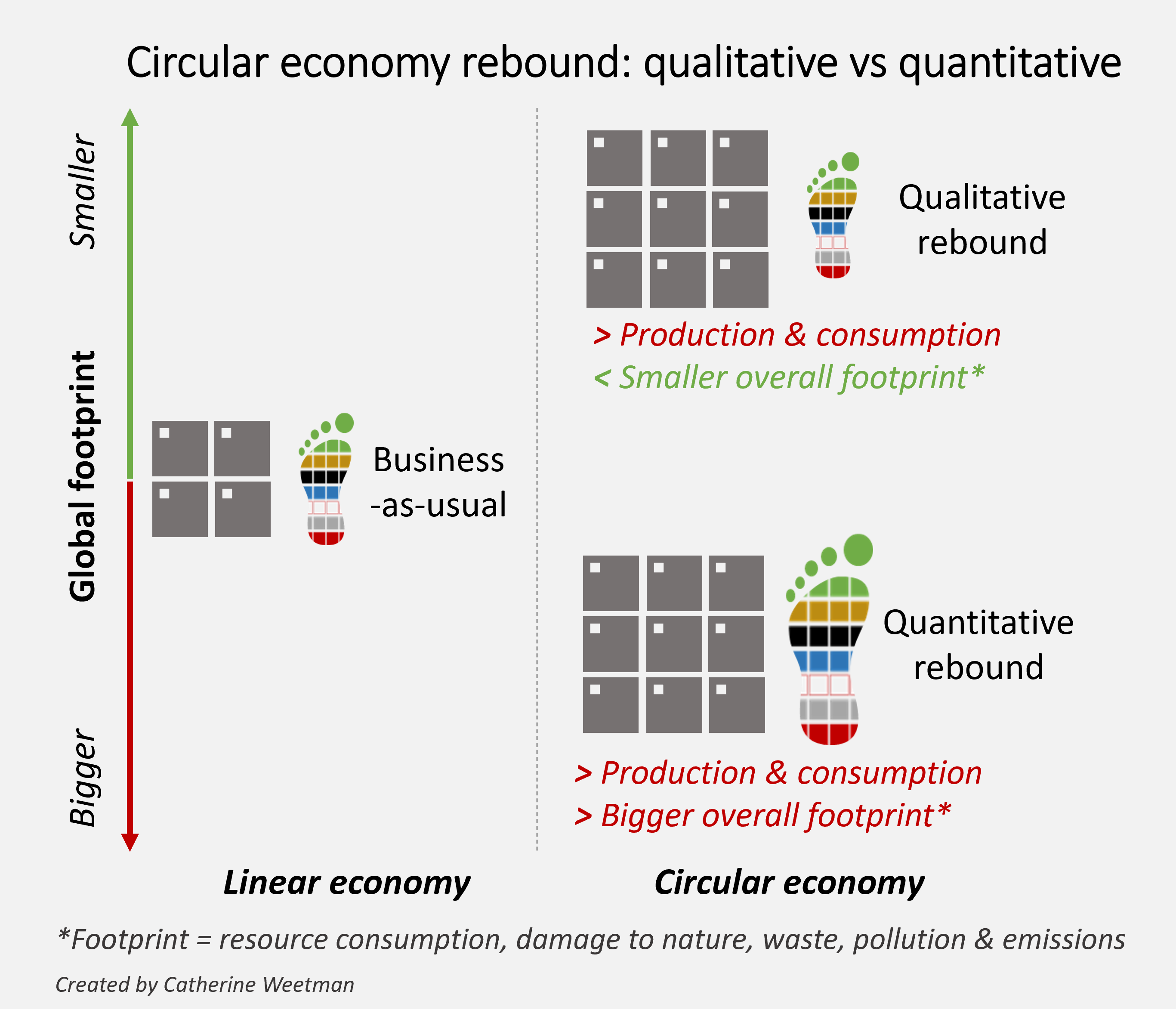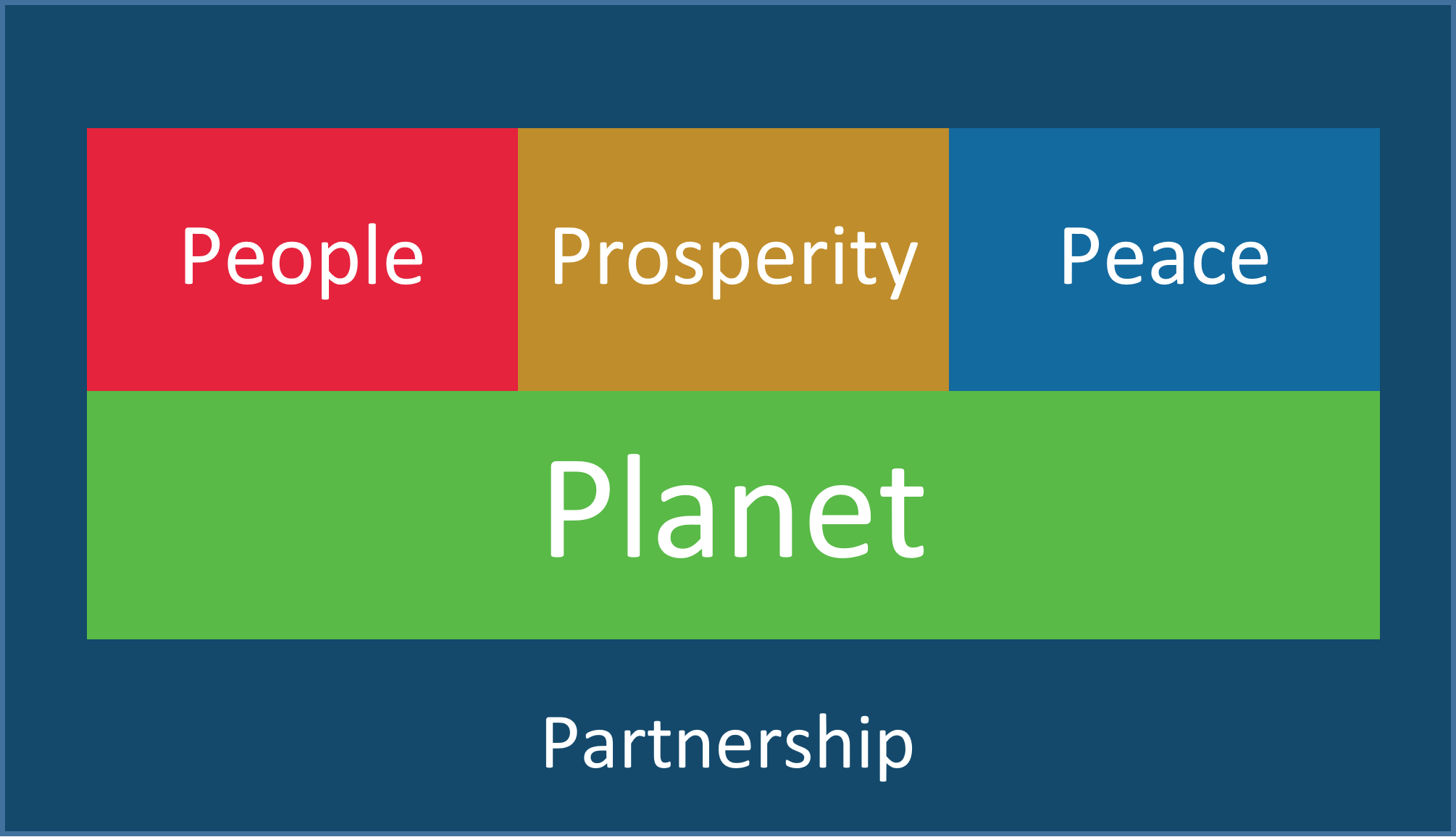Peter Drucker quote added to image by Gerd Altmann on Pixabay
7 minute read
An important stakeholder… planet Earth
Stakeholder capitalism is one of the key themes of Davos 2020 (the World Economic Forum’s annual meeting) including a panel discussion on ‘Leading a 21st Century Corporation’ which explored how companies can benefit all stakeholders, including customers, employees, suppliers, communities as well as shareholders. Kevin Sneader, Global Managing Partner of McKinsey & Co. noted several factors which are driving the change back to stakeholder capitalism: widening income inequality despite strong economic growth, globalization, emerging technologies, as well as the fact that some businesses have made mistakes that have shaken the trust of the public. At Davos 2020, the World Economic Forum launched a ‘New Davos Manifesto’, a set of ethical principles, based on stakeholder capitalism, to guide companies in the age of the Fourth Industrial Revolution.
In several recent newsletters, we’ve highlighted the urgent need for a different approach to business, highlighting the Future-Fit Foundation’s model of ‘system value’, and Klaus Schwab (founder of the World Economic Forum), asking What Kind of Capitalism Do We Want?
Charles Handy asks ‘What is a Company For?’
In this blog, we’re going back a few decades to a talk that business guru Charles Handy gave in 1990 at the RSA: ‘What is a Company For?’ Reflecting on his business school education in the 1960s, the answer was to ‘maximise the medium-term earnings per share’. By 1990, Handy challenged this doctrine. Instead, he believed ‘The principal purpose of a company is not to make a profit – full stop. It is to make a profit in order to continue to do things or make things, and to do so even better and more abundantly.’ You can read more about this thinking in a 2016 article by David Grayson, Professor Emeritus at Cranfield School of Management, or read the lecture transcript: What Is a Company For? by Charles Handy
Handy’s talk inspired the RSA to launch the Tomorrow’s Company Inquiry to examine the role of business in a changing world. Led by Sir Anthony Cleaver, then Chairman of IBM, the inquiry aimed to stimulate greater competitive performance by encouraging business leaders to re-examine the sources of sustainable business success.
The findings, published in 1995, introduced the concept of an inclusive approach to business success in which a company:
- defines and communicates its purpose and values
- develops a unique success model which adds values to its customers
- works in partnership with its key stakeholders, particularly its employees, customers, suppliers, investors, the environment and the community in which it functions
- maintains its licence to operate
In 1999, I joined the Tomorrow’s Company cohort of 30 experienced management consultants, aiming to inspire and enable businesses of all sizes to embed these principles in their operations. I gave conference talks, and was involved in a wide range of initiatives: inclusive annual reporting, performance measurement, ethics, governance and leadership. I even co-wrote a play with Mark Goyder, explaining Tomorrow’s Company’s ideas – which we performed in a ship’s theatre to business leaders as we sailed around the Channel Islands! I continue to support the Tomorrow’s Inclusive Development initiative as a Senior Advisor, sharing Tomorrow’s Company thinking with emerging economies. All this has convinced me that inclusive capitalism is a critical foundation for successful business models.
From guidelines to laws

The work by Tomorrow’s Company played an important part in changing UK laws, with Section 172 of the UK Companies Act 2006 (S172). embedding the concept of an ‘enlightened shareholder approach’ to business into law:
‘A director of a company must act in the way (s)he considers, in good faith, would be most likely to promote the success of the company for the benefit of its members as a whole, and in doing so have regard (amongst other matters) to the:
- likely consequences of any decision in the long term interests of the company’s employees
- need to foster the company’s business relationships with suppliers, customers and others
- impact of the company’s operations on the community and the environment
- desirability of the company maintaining a reputation for high standards of business conduct
- need to act fairly as between members of the company.’
In August 2019, the Business Roundtable, representing some of the world’s largest companies and investors including Jamie Dimon (JP Morgan) and Jeff Bezos (Amazon), said they ‘plan to abandon the long-held view that shareholders’ interests should come first amid growing public discontent over income inequality and the burgeoning cost of health care and higher education.’ Writing in Economia, Michael Izza, Chief Executive of the Institute of Chartered Accountants in England and Wales referred to this, noting that the Financial Reporting Council’s July 2018 Corporate Governance Code now refers to Section 172 of the UK Companies Act. This change emphasises relationships between companies, shareholders and stakeholders, as well as establishing a corporate culture that is aligned with the company’s purpose and values.
Surprisingly, it seems there is only one case so far in the UK of a company director being taken to court for non-compliance of S172, which didn’t result in prosecution. Rather than focusing on legal compliance, I hope that business leaders see ‘inclusive capitalism’ as an opportunity. Using a people- and planet-based approach towards the creation of long-term shareholder value means these principles make good business sense.
In fact, amongst the top investment managers this is already happening: NEST, the workplace pension set up by the UK government, has a sustainable investment policy which takes into account factors such as those arising from environmental, social and governance (ESG) considerations, including climate change, in the context of the broader risk management framework. Blackrock, the world’s largest asset manager says that long-term sustainability is embedded across its business: ‘From integrating ESG practices into our investment processes to creating positive social impact by serving communities in the UK, we are dedicated to helping clients, employees, shareholders and communities achieve long-term, financial well-being.’
Upgrading the capitalist operating system

The momentum continues with a move to extend the reach of Section 172. Bates Wells, a UK law firm, has published a draft Bill to displace the doctrine of ‘shareholder primacy’ as the guiding principle of boardroom decision-making, in favour of the ‘triple bottom line’ as the solid foundation for a sustainable economy.
The Bill proposes that companies should be legally required to ensure that their core purpose benefits wider society and the environment, reduces any harm it creates, and to eliminate all costs it imposes on society or the environment. This draft bill is part of ‘Operation Upgrade’, a collective effort to ‘upgrade’ the capitalist ‘operating system’ which aims to enable humanity to close the emissions gap and bridge the SDG finance deficit.
Bates Wells are ‘walking the talk’, balancing purpose and profit as the first UK law firm to become a Certified B Corp. They join 10,000 companies around the world who are legally required to consider the impact of their decisions on their workers, customers, suppliers, community, and the environment. B Corps are among a growing tide of businesses creating a 21st century and more sustainable approach to corporate accountability, putting Triple Bottom Line accounting (environmental and social as well as economic) into action.
Crossing the chasm
Three decades after Charles Handy’s talk sparked the Tomorrow’s Company Inquiry, momentum is building. Consultancy Deloitte’s Global Marketing Trends 2020 identifies two key trends: purpose and human experience. Deloitte says that although ‘purpose is not new, it’s more important now than ever to direct every strategic choice across the organization.’ Human experience, meanwhile, ‘weaves purpose across a brand’s interactions and relationships with its customers, workforce, and business partners, helping ensure that every facet of a company’s operations is aligned with making the world better for all the people it serves.’
Inclusive capitalism is even more relevant today; companies are realising that circular principles can move us away from the current linear (Take-Make-Waste) approach, to create a just and fair market-led economy to achieve the SDGs as well as mitigate the negative impacts of climate change. Forward-thinking business leaders are looking at how they can integrate the needs of all their stakeholders – employees, customers, suppliers, partners, society and our living planet – as well as owners and shareholders. They are becoming B Corps, adopting the Sustainable Development Goals, using Environmental Profit and Loss accounts, the Future-Fit Business Benchmark and more, to make sure they are inclusive, and relevant.
When change happens, it usually follows a ‘diffusion curve’, with ‘innovators’ and ‘early adopters’ switching behaviour first. Geoffrey A. Moore, in his book ‘Crossing the Chasm’, highlighted the potential for a big gap between those early adopters and the next group to make the change. We think business is ready to cross the chasm, and earn the right to operate – regenerating resources, ecosystems and communities, instead of depleting, destroying and exploiting.
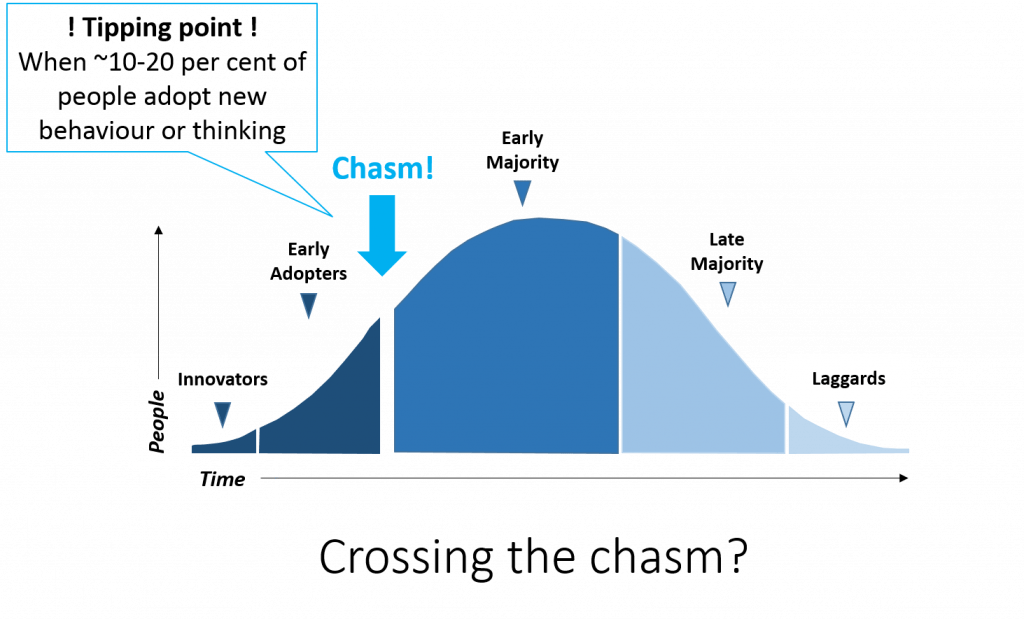
We need a circular, inclusive economy
We return to Davos 2020 for a reflection by Frans van Houten, CEO of Royal Philips and Naoko Ishii, CEO of Global Environment Facility. They emphasise how we must use the world’s natural resources in sustainable and climate-friendly ways. With only 10 years to achieve the UN Sustainable Development Goals, and even less time to prevent global warming from exceeding 1.5˚C, the need for a circular economy alongside collaboration between business, government and civil society has never been greater.
The final word goes to the Economist back in 2001, ‘Consumer trust is the basis of all brand values, and therefore brands have an immense incentive to retain it.’
People expect companies to do the right things – and brand trust can be lost in a heartbeat.
Peter Desmond
Peter is a circular economy coach, workshop facilitator and strategic advisor. He helps businesses find circular opportunities, create a compelling business case, and broaden their networks, and is keen to work with SME’s and start-ups, helping them use the circular economy to succeed and prosper.
Peter’s extensive financial background underpins his circular economy advice and support, and he supports businesses as a Circular Economy Club Mentor and Local Organiser for Brighton & Hove. He also helps overseas organisations to embed the circular economy and is co-founder and chair of the African Circular Economy Network.
To find out more about the circular economy, why not listen to Episode 1 of the Circular Economy Podcast, read our guide: What is the Circular Economy, or stay in touch to get the latest episode and insights, straight to your inbox…
